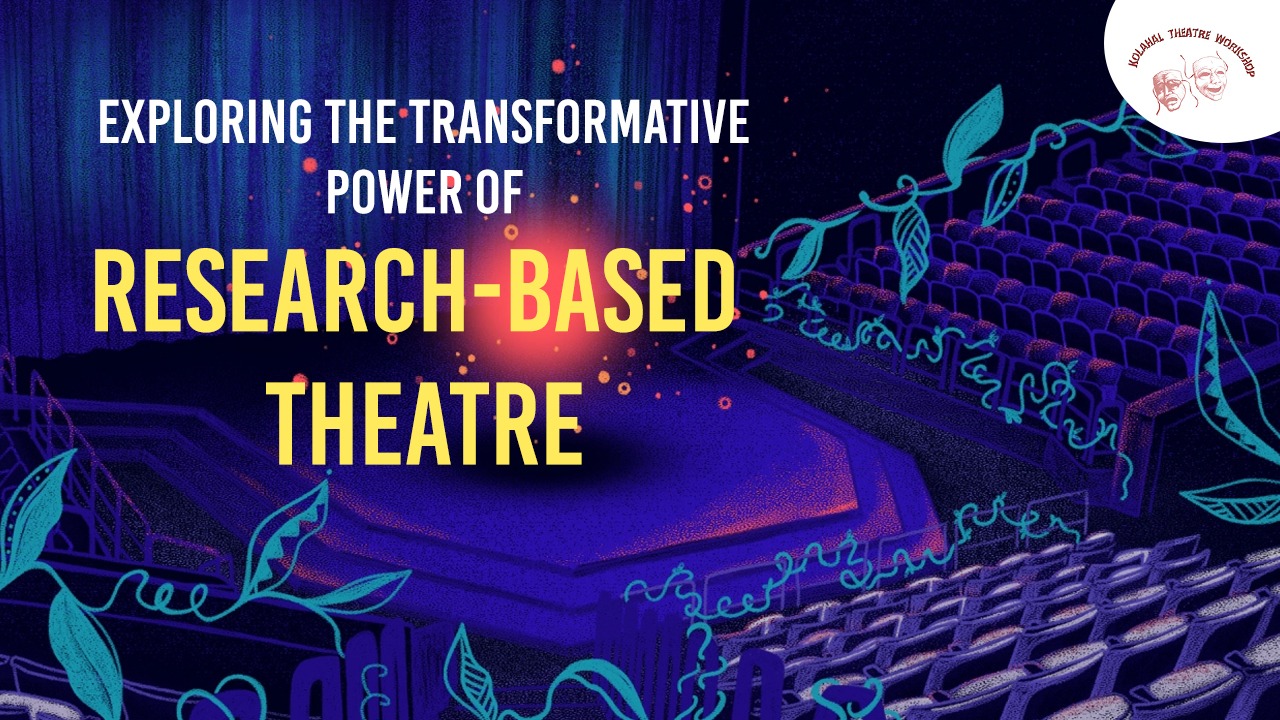Exploring the Transformative Power of Research-Based Theatre
INTRODUCTION: WHAT IS RESEARCH-BASED THEATRE?
Research-based theatre, a dynamic and innovative approach to both research and performance, has been gaining momentum in recent years to bridge the gap between academia and the common mass. Combining elements of traditional research methodologies with the creative expression of theatre, this interdisciplinary form offers a unique platform for engaging audiences in complex social issues, stimulating dialogue, and fostering empathy and understanding.
WHAT DOES RESEARCH-BASED THEATRE ENTAIL?:
At its core, research-based theatre involves the collaborative efforts of researchers, playwrights, directors, actors, and sometimes even the community members whose stories are being explored. The process typically begins with extensive research on a particular topic or issue, ranging from healthcare disparities to environmental activism, social injustice, historical events, or personal narratives. This research serves as the foundation for the creation of a theatrical script, which may incorporate verbatim dialogue from interviews, primary source materials, or other forms of data.
FEATURES OF RESEARCH-BASED THEATRE:
One of the most compelling aspects of research-based theatre is its ability to humanize abstract concepts and statistics by grounding them in lived experiences. By weaving together multiple perspectives and voices, these performances offer audiences a more nuanced understanding of complex issues, challenging preconceived notions and encouraging critical thinking. Through the power of storytelling, research-based theatre has the potential to evoke emotional responses, inspire action, and spark meaningful conversations that extend far beyond the confines of the stage.
Moreover, research-based theatre has the capacity to empower marginalized communities by amplifying their voices and providing a platform for their stories to be heard. By actively involving community members in the research and creative process, these productions can foster a sense of ownership and agency among those whose experiences are being represented. This participatory approach not only ensures greater authenticity and cultural relevance but also promotes social cohesion and collective empowerment.
In addition to its impact on audiences and communities, research-based theatre can also have significant implications for the research process itself. By engaging with research findings in a creative and performative context, researchers are challenged to consider alternative modes of dissemination and communication. This can lead to greater accessibility and inclusivity within the academic sphere, as well as opportunities for interdisciplinary collaboration and knowledge exchange.
LIMITATIONS OF RESEARCH-BASED THEATRE:
While research-based theatre undoubtedly offers numerous benefits, it is not without its challenges. Balancing the rigors of academic research with the demands of theatrical production can be a complex and time-consuming endeavor. Furthermore, navigating ethical considerations, such as obtaining informed consent from participants and ensuring the responsible representation of sensitive material, requires careful attention and sensitivity.
CONCLUSION:
Nevertheless, the potential rewards of research-based theatre are vast. By harnessing the transformative power of storytelling, this innovative approach has the capacity to bridge divides, challenge assumptions, and inspire positive social change. As researchers, artists, and activists continue to explore new ways of combining research and performance, the impact of research-based theatre is sure to grow, enriching both academia and society as a whole.




